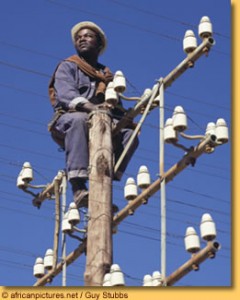A business climate survey conducted by the Malawi Confederation of Chambers of Commerce and Industry (MCCCI) has shown that electricity and crime are the major obstacles at the affected doing of business in Malawi in 2012.
Results of the survey, released by MCCCI this week, indicate that out of the top 10 obstacles, poor electricity supply tops the list with a 9.3 score out of 10 while crime is second scoring 8.9.
The exchange rate policy comes third with 8.6 score followed by uncertainty in the economy and registration policies and cost of finance with the same score line.
MCCCI Public Private Dialogue Manager Hope Chavula said the installed electricity capacity is too small and the poor quality of supply is leading to loss of sales of businesses due to electrical outages.
“The unreliability of power has led to use of diesel generator sets which have significantly increased the cost of manufacturing, especially in light of increasing oil prices,” said Mvula.
He said the contribution of manufacturing to the Gross Domestic Product (GDP) significantly declining over the years and that the little remaining manufacturing is concentrated in low technology and low value products as companies strive to minimise losses due to power outages.
“The business community would like to see electricity supply receiving the highest attention from government,” said Mvula.
He said MCCCI feels that is a need to come up with a clear investment programme for energy supply which businesses can use as a basis for investment planning.
On security, Chavula said incidents of crime and theft targeting businesses have also been mentioned by companies as one of the issues that affected their operations in the year 2012, especially in the cities of Blantyre and Lilongwe.
He said the security problem worsens the business environment to even attract genuine foreign investors.
“Businesses are of the view that the Malawi Police Service is focusing more on other areas than creating a better security environment for promoting private sector development,” said Chavula, adding: “The additional costs that businesses incur due to alternative arrangements for security should ideally have been met by the government.”
He said internal security officers should come up with security programmes that can help reduce crime and theft.
Chavula said the survey also spelt a need for investment in education that will ensure production of skills required for a technology driven economy.
“The education system should tally with the direction of economic policy that should help restructure the economy in order to promote manufacturing,” he said
He said there is also a need to expeditiously address problems leading to high cost of transporting exports.
Other obstacles in doing business identified by the survey include customs registration, procurement bureaucracy, corruption, instability of political environment, transport infrastructure and tax administration.




